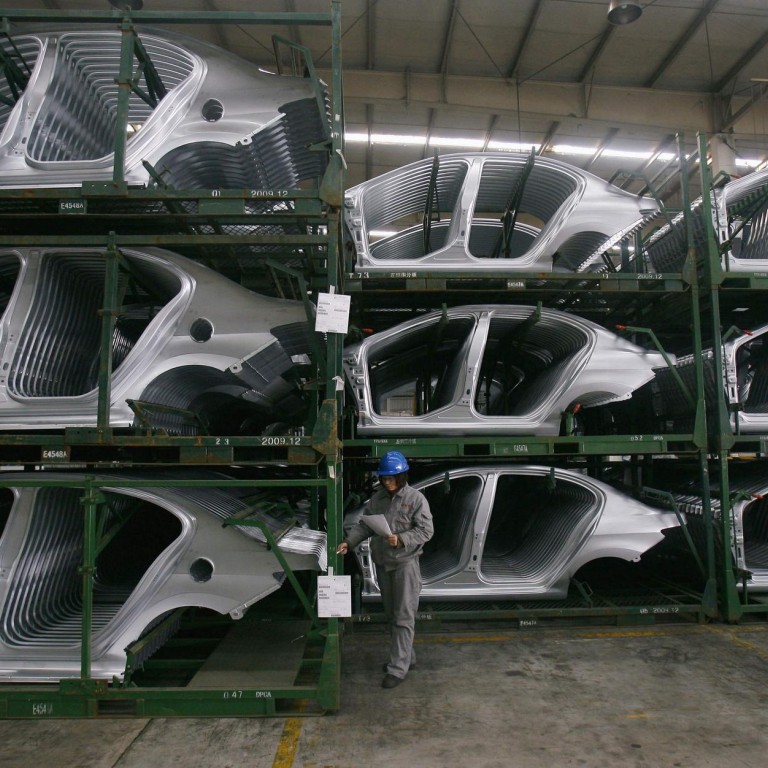
Chinese carmakers wary of foreign deals
Mainland car brands seen as too weak to compete with foreign investors in the event of ownership rules being loosened
Mainland carmakers are not ready for more foreign investment as homemade brands remain weak despite years of joint ventures with their overseas counterparts.
"I opted for a joint-venture car brand when buying my car as I thought the quality of those local brands was not good enough," said Cai Xu, who is using a Dongfeng Citroen-branded car made under the joint venture of state-owned Dongfeng Motor and French carmaker PSA Peugeot Citroen.
"Local carmakers have been working with foreign counterparts for a long time, but I think the local carmakers cannot use all the technologies of their partners to make their own car on concerns over intellectual property rights," Cai added.
[Mainland] carmakers lack the initiative to nourish their own brands
Mainland car sales rose 13.9 per cent last year to 21.98 million vehicles, said the official China Association of Automobile Manufacturers. Of the top ten car brands in terms of sales, eight were joint-venture brands - Shanghai General Motors, FAW-Volkswagen, Shanghai Volkswagen, Dongfeng-Nissan and Beijing Hyundai among others.
"As the joint-venture business has been lucrative, local carmakers lack the initiative to nourish their own brands," said Yale Zhang, head of Shanghai-based consulting company Automotive Foresight.
Currently, a 50 per cent ceiling is set on foreign ownership in car manufacturing ventures. However, the limit on foreign ownership can be lifted as the Ministry of Commerce said China would further open up manufacturing and Chinese carmakers should prepare for the day when the ceiling is removed.
"If foreign players were allowed to set up their wholly-owned units, they would very likely be independent from their local partners," Zhang said, and the profitability of those local players, in particular state-backed firms, was low. "Local companies have long been relying on … their joint ventures."
The government had been pushing state-backed carmakers to strengthen their brands to boost their competitiveness, but the firms are more keen to invest in profitable ventures with foreign partners than developing their own brands, Zhang said. "Local carmakers like Beijing Automotive and Dongfeng have developed their own brands but are unable to gain recognition from consumers," he added.
China's car industry is getting bigger but is not stronger, said Gordon Xie, a partner with Deloitte who advises the car industry. Consumer recognition still belongs to foreign brands compared to the image of locally made cars, he said. Local carmakers would still need time to catch up. "Foreign carmakers are always ready for a relaxation in the investment limit, but local players are not," said Xie.
Some state-owned carmakers might even sell their business and withdraw from the industry if the foreign ownership limit was relaxed, Zhang said.
Private carmakers would likely welcome a relaxation of the limit as their brands were well-developed, he said, pointing out that "private companies such as Geely and BYD are competitive, and they didn't need a foreign partner at the very beginning."
Xie agreed that private carmakers like Geely were able to maintain a good cost structure that made them more competitive in prices. "Local brands can stand out by targeting lower-tier cities with lower-priced products, or set their sights on niche markets like BYD, which focuses on new energy cars," he said.
Li Shufu, chairman of Geely, told reporters in Beijing that foreign carmakers should be allowed to control their operations in China to allow market forces to decide the competition between local and foreign companies.
